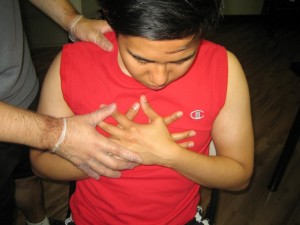Ever since its introduction to the US market in 1947, methadone has become the drug of choice of many healthcare professionals because of its efficiency in relieving chronic pain which is common for terminally ill patients and its efficiency in treating opiate or heroine addiction or dependency. After further research and studies though, it was discovered that methadone is highly addictive and that methadone toxicity can cause lung problems. However by learning how to manage and prevent dependency and toxicity through first aid training classes and knowing crucial information on how this drug can cause lung problems, methadone can still be used safely. Here are some information on the relevance of methadone and lung problems.
Methadone can cause lung depression
Methadone toxicity can cause lung problems in two ways. The first way is that it can cause lung depression when taken with a CNS depressant. Respiratory depression is defined as a condition in which the affected individual experiences less frequent, slower and more shallow breaths. Because of this inadequate breathing, oxygen circulation is slowed down which delays the delivery of oxygen to the different parts of the body, including the brain. It can also increase the concentration of carbon dioxide in the body since respiratory exchange is impaired. This increase is more commonly referred to as respiratory acidosis.
One of the main reasons why many patients who take methadone suffer from lung depression is that CNS depressants encompass a wide variety of medications. Hence, patients often do not realize that they are already taking CNS depressants.
Methadone can cause pulmonary edema

Pulmonary edema is one of the most common complications and symptoms of opiate toxicity. It is most caused by the narrowing of the blood vessels in cases of congestive heart failure and the increased introduction of fluid and protein in the alveoli in the cases of methadone overdose. What makes it so lethal is that medications such as Naloxone that are designed to reverse the effects of respiratory depression cannot cure pulmonary edema.
What will be taught in first aid classes
Even though pulmonary edema cannot be treated by the likes of Naloxone, it can be treated by the administration of steroids and diuretics. Considering that proper administration of different medications is taught in first aid classes, rescuers and other individuals will be able to administer these necessary medications in the right way. These classes also include lectures and discussions on how to increase the respiratory rate of patients using both pharmacological and non-pharmacological techniques which can cause respiratory depression reversal.
